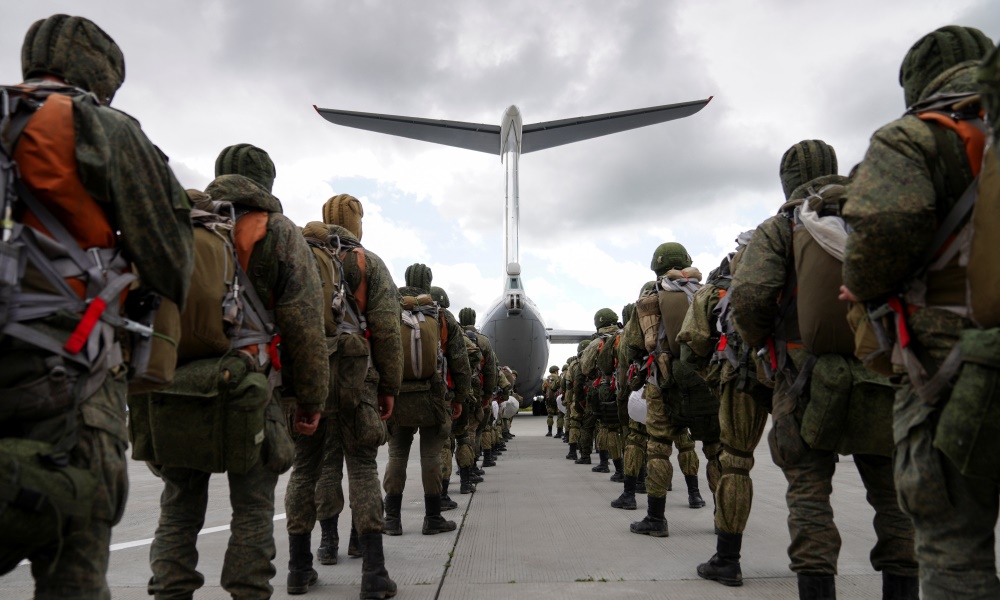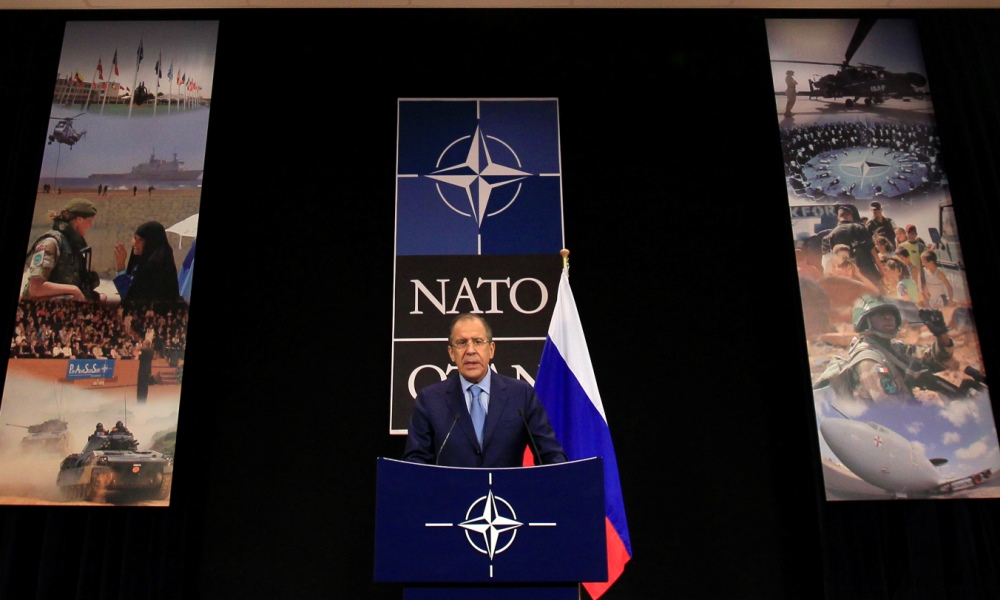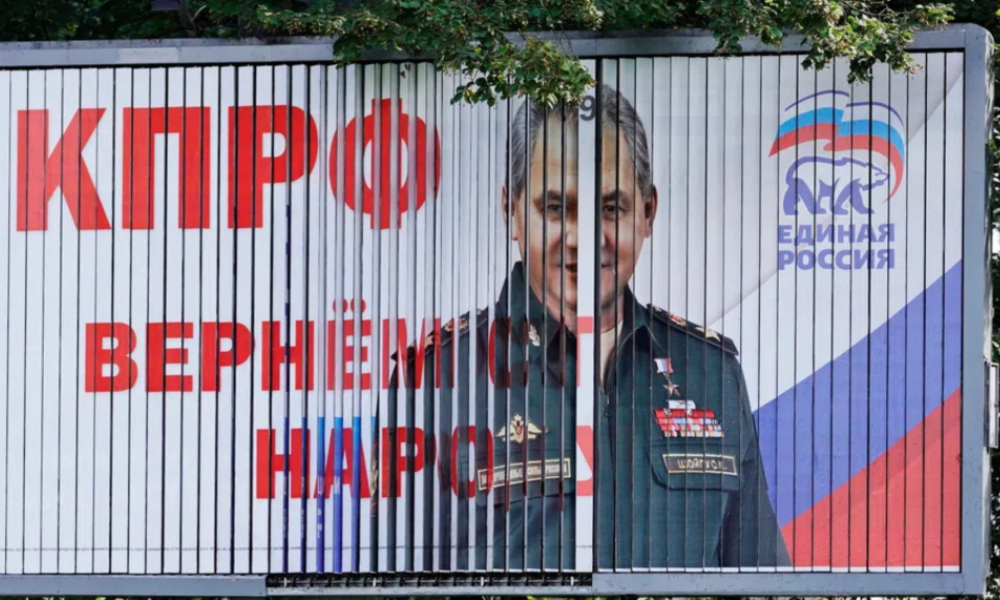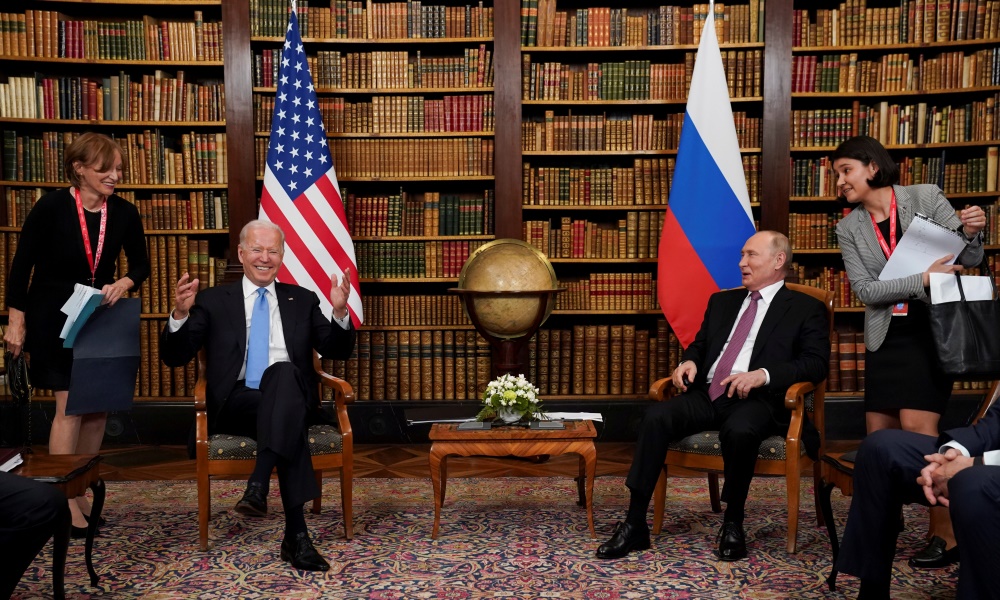War and Our Role
Blog post by Grigory Yavlinsky, yavlinsky.ru, 8.01.2022
God forbid that war should happen,
Or else we will make a fool of our grandkids…
Vladimir Vysotsky. Ballad on Departure to Heaven
The anti-Ukrainian propaganda in the Russian mass media continues unabated. The world press is overflowing with information and assumptions on an impending war between Russia and Ukraine at the start of 2022. I personally don’t believe that this can happen. However, let me start with the key issue. If there is a war between Russia and Ukraine and Russia tries to occupy Ukraine, this will be suicidal for Russia.

Russian paratroopers line up before boarding a Il-76 transport plane as they take part in the military exercises «Zapad-2021» staged by the armed forces of Russia and Belarus at an aerodrome in Kaliningrad Region, Russia, September 13, 2021. REUTERS/Vitaly Nevar
The policy of “The Path That Wasn’t There”1 will be taken to its logical conclusion, leaving Russia with no prospects, no opportunities to make any manoeuvres and no leverage or influence. This will not only signal the end of President Putin’s regime, but also potentially the end of Russia as a state and in general our country as it looks today.
The war will resemble fratricide. A lot of blood will be spilled. If we only take the official data of the UN, almost 13,500 people have died during the seven years of military combat in Donbass2 (to put this in perspective: during nine years of war in Afghanistan, the USSR lost 15,000 soldiers and civilian employees). As a matter of fact, this would be the final chord of the period of Russian history which started with the coup d’état in 1917, Bolshevism’s last stand — and would be fatal for us all.
For Russia war with Ukraine would be akin to a self-imposed nuclear strike. And this is not only because such a war could lead to global conflict. It goes without saying that the prospects of the deployment of nuclear weapons in Poland, Belarus and the Baltic States would be a serious development similar to the incipient collapse of the nuclear deterrence system (incidentally, Russian policy in this area over the past 15 years has contributed directly to such a scenario3). However, I am referring to something else here. Russia’s war against Ukraine could become the most lethal conflict in Europe since World War II. Meanwhile, the consequences of an actual war in the 21st century with a neighbour, all the more so such a country as Ukraine, would be an existential disaster for our country, jeopardising Russia’s very existence as a state.
UNDERLYING FACTORS
An in-depth understanding of the underlying factors of the impending war is required. Putin effectively issued an ultimatum, demanding that NATO rescind the promise that it made in 2008 to admit Ukraine and Georgia as members. And even though NATO has never determined the timeframe and has not planned any start to the official process for admitting these countries to the alliance, Russia is insisting on legal guarantees that this promise is no longer valid and that NATO will not deploy weapons in any countries bordering Russia, will not conduct any military exercises within the fixed range from Russian borders, and will establish the maximum possible distance when it comes to the approach of NATO’s vessels to Russia’s borders in the Baltic and Black Seas. If the US and their allies refuse and try to torpedo all these proposals, then “they will inevitably be confronted by a further deterioration in the situation when it comes to their own security”. This is the official position of Russia’s Ministry of Foreign Affairs4.
It is clear that the West will not agree to this formulation of the facts. The West believes that one country may not force another one to change its borders and policies. One state may not dictate to another country the countries with whom it may or may not cooperate. According to NATO: “It is up to Ukraine alone to choose its own path, whether it aspires to be a member of NATO or not. No one else can decide”5.

Russian Foreign Minister Lavrov holds a news conference after a NATO — Russia foreign ministers meeting at the Alliance’s headquarters in Brussels April 23, 2013. REUTERS/Yves Herman
Russia is deliberately creating a situation where, as the saying goes, it runs into a brick wall: Western “partners” must give in and concede, otherwise there will be a war. For the time being, a war that will not involve “partners”, and only Ukraine, because the “partners” are allegedly transforming Ukraine into “anti-Russia”.
The plan to play the war card with Ukraine, in other words, to exploit the threat of the loss of tens of thousands of lives as leverage, is not only repugnant, but also triggers considerable alarm. In a bid to put pressure on the US, the Russian regime is backing itself into a corner and establishing deadlock. The situation is becoming extremely dangerous: in this scenario, neither Russia, nor the West will be able to back down.
And this is the key issue today.
NARRATIVE OF WAR
It is common knowledge that threatening war is a long-standing strategy of the Russian regime. However, over the past year the threats have been stepped up, acquired new forms and become more direct. Articles penned by President Vladimir Putin6 and former President Dmitry Medvedev7, the constant reproduction in different forms of the ideas they outlined in the propaganda mass media and statements of lower-level bureaucrats are actively preparing society for war and writing its narrative.
The troops and equipment redeployed to Ukraine’s borders have created significant potential: the accumulation of 175,000 Russian soldiers near an area which has already been a zone of active military actions for seven years, makes the threat of war even more likely. In this scenario, any discussions that this is a mere bluff, blackmail, a big political game in which the concentration of troops on the Russian-Ukrainian border is only one of the trump cards, could turn out to simply be a smokescreen before the war. At the same time, experts are already talking about an “inevitable confrontation” and even propose contemplating respective strategic and tactical “benefits”. An increasingly fine line separates us from an irreparable situation.
To all intents and appearances, the ruling elite in Russia is losing touch with reality more and more. They have toyed with the construction of a “separate civilisation” and the redrafting of Russia’s constitution. The Russian authorities are preoccupied with inventing a “sovereign” anti-European structure of the country8 and already believe their own fantasies of a “multipolar world” that the US has exited, unleashing regional autocracies. It would appear that the revanchist cargo cult is flourishing in the inner recesses of the powers that be: if we create a situation similar to the Caribbean Crisis9, then we will become as tough and cool as the former USSR. All that is left to do is “to think up a new religion”10.

TASS/ Vitaly Nevar
Russia’s society has lost its bearings and is disoriented. Even though Putin’s doctrine on Ukraine as an alleged “failed state” was published back in July, notwithstanding the monstrous wide-ranging promotion of war on all Russian state TV channels and military-minded advocacy in public discourse, even though the party of the powers that be was headed at the State Duma elections by the Ministers of Defence and Foreign Affairs, the threat of war has not become the key topic in the public agenda. During the State Duma election campaign, which was to a large extent a public opinion poll on Putin’s position about Ukraine, the topic of opposing war and preventing it was effectively not discussed11. The few mass media opposed to the powers that be, which could and should have proclaimed the danger of war, were instead preoccupied with calls to the post-Soviet intelligentsia — as the so-called best people are called12 — to vote for communists and followers of the nationalist writer Zakhar Prilepin, for people who together with United Russia supported, support and will support war and imperial militarism.
The result of the State Duma elections increased the likelihood of war13.
DEADLOCK
Everything happening today — including widespread voting for Stalinists, the real threat that the Russian army might invade Ukraine and the increasing repressions perpetrated by the Russian regime against its own citizens — is the direct result of Russia’s failure during 30 post-Soviet years to come any closer to the goals which had appeared obvious at the end of the 1980s – early 1990s. I am referring here to the construction of a modern European state: to create conditions for a dignified life, be free of any fear of the authorities, poverty and an uncertain future.
Standing as we do on the brink of war in the run up to 2022, coupled with the state of mind of people dubbed at one time the thinking class who are unable to understand the link between support for communists in the elections and the liquidation of “Memorial”14, is a clear sign of the collapse of post-Soviet modernisation.
Nevertheless, the unrealised goals are still relevant today. Moreover, prioritising and promoting these goals is key to resolving today’s challenges and problems. We need to win over hearts, minds and souls — and not some new territories — so that people want to live in Russia and not leave the country in large numbers, as has been the case over the past ten years.
The situation in and around Russia attests to the bankruptcy of the strong man policy implemented by Putin over the past few years. While disposing of sufficient resources to create in Russia a life that would attract Ukrainians, Russia’s President instead transformed a people with family and cultural ties with Russia going back centuries into an implacable enemy. According to recent public opinion polls, 74% of Ukrainians consider Russia the main threat to national security. Moreover, 24% of Ukrainian men and women are ready to take up arms to defend their country15.

U.S. President Joe Biden and Russia’s President Vladimir Putin meet for the U.S.-Russia summit at Villa La Grange in Geneva, Switzerland, June 16, 2021. REUTERS/Kevin Lamarque
It seems that no one controls the explosive situation of a possible Russian invasion of Ukraine. International politics and democracy have already contracted almost definitively to the ability “to simultaneously walk and chew the fat”16. In the post-modern world, the key problem of global politics is the vapid nature of conversations at the highest level, which lead nowhere, as in the case of multicomponent summits17. The forums have effectively been rendered pointless and devoid of substance, while any information about them is reduced to tales on who sat next to whom, what pose they took and what kind of jokes they told. Such meetings have not engendered any new political successes for a number of years18. And the prospect of collapse, when it will no longer be possible to either “walk” or “chew the fat”, for the time being a remote, but real option, is becoming clearer and clearer.
Today’s post-modernist Realpolitik is destroying globalisation, fostering nationalism and leading us down a blind alley.
***
How can we oppose war instead of engaging in small talk and narrow-minded transient “pragmatism”?
Russia has only one path to the future — politics based on freedom, the respect of human dignity and the acquisition of friends. We must build a country and world based on indisputable common values, as we used to call them — European, humanist or Christian. We need to do our utmost so that people like how we live, so that the example of our lifestyle becomes attractive. Today, this is definitely not the case. However, this is a special topic that requires a separate discussion.
For the time being, however, I have this to say to anyone who is concerned about people’s lives — both Russian and Ukrainian lives, and to anyone who is concerned about Russia’s fate: we must oppose the war in every possible way, we must explain the key issue — that war with Ukraine would be tantamount to Russia’s suicide. Ukraine would suffer significantly, but Russia would no longer be a state as a result of this war.
I really hope and want to believe that there will be no war and that we will manage to avert such a disaster.
- A. Yavlinsky. The Path That Wasn’t There // Novaya Gazeta. 19 October 2015. Access(checked on 13 December 2021).
- According to the United Nations High Commissioner for Human Rights, 13,200-13,500 people have been killed as a result of military actions in Donbass from 14 April 2014 to 30 June 2021. See: UN reports on the number of victims of military action in Donbass since 2014 // Centre of Journalistic Investigations. 15 July 2021. Access(checked on 13 December 2021).
- A. Yavlinsky. How to Avoid Going to «Heaven» // Official website of Grigory Yavlinsky. 3 November 2020. Access(checked on 13 December 2021).
- RF Ministry of Foreign Affairs: We Cannot Allow a Repeat of the “Caribbean Crisis” // Nezavisimaya Gazeta. 10 December 2021. Access(checked on 13 December 2021).
- Stoltenberg Sets out the Premises for Ukraine’s Potential Membership of NATO // RIA Novosti. 10 December 2021. Access(checked on 13 December 2021).
- A. Yavlinsky. On the Historical Future of Russia and Ukraine // Official website of Grigory Yavlinsky. 30 July 2021. Access(checked on 13 December 2021).
- A. Yavlinsky. Lessons Not Learned // Official website of Grigory Yavlinsky. 5 November 2021. Access(checked on 13 December 2021).
- A Draft Law Has Been Submitted to the State Duma on the Creation of the Federal Territory Sirius // Parlamentskaya Gazeta. 9 November 2020. Access(checked on 13 December 2021); The State Duma Passes Law on a Regional Public Authority // RIA Novosti. 14 December 2021. Access (checked on 15 December 2021).
- The Ministry of Foreign Affairs Assumes that there will be a Repeat of the Caribbean Crisis in Relations with the USA // RBC. 9 December 2021. Access(checked on 13 December 2021).
- Pietsukh. Central-Yarmalayev War. Moscow, Pravda, 1989.
- “It will represent an opportunity to vote against the war.” Interview with Grigory Yavlinsky on the radio station Echo Moskvy // Echo Moskvy. 22 July 2021. Access(checked on 16 December 2021); “The powers that be want to resolve all their problems through war. War will wipe the slate clean.” Interview of Grigory Yavlinsky to the journalist Maxim Glinkin // The New Times. 16 August 2021. Access (checked on 16 December 2021); “Now everything is very simple: either war or no war.” Interview of Grigory Yavlinsky to the Current Time TV channel// Current Time. 21 August 2021. Access (checked on 16 December 2021).
- Yabloko’s political committee assesses the results of the elections and sets out the party’s objectives for the future // Official website of the Yabloko party. 15 October 2021. Access(checked on 13 December 2021).
- A. Yavlinsky. Negative Selection // Official website of Grigory Yavlinsky. 27 October 2021. Access(checked on 13 December 2021).
- A. Yavlinsky. The Liquidation of Memorial will be Putin’s Personal Decision // Official website of Grigory Yavlinsky. 15 November 2021. Access(checked on 13 December 2021).
- More than 70% of Ukrainians consider Russia the most immediate threat // Antifascist.com. 30 June 2021. Access(checked on 13 December 2021).
- A. Yavlinsky. Putin and Biden. It Takes One to Know One // Official website of Grigory Yavlinsky. 24 March 2021. Access(checked on 13 December 2021).
- The US President Holds a Summit in Support of Democracy // Radio Liberty. 9 December 2021. Access(checked on 13 December 2021).)
- This may not concern climate issues. However, in this sector, the promises relate to 2050. And, using the words of Nasreddin Hodja, “within 20 years, one of us three will definitely die — either the Emir, the ass or I myself.”
is Chairman of the Federal Political Committee of the Russian United Democratic Party YABLOKO, Vice President of Liberal International, PhD in Economics, Professor of the National Research University Higher School of Economics.
Posted: January 10th, 2022 under Foreign policy, Russia-Ukraine relations, Без рубрики.







